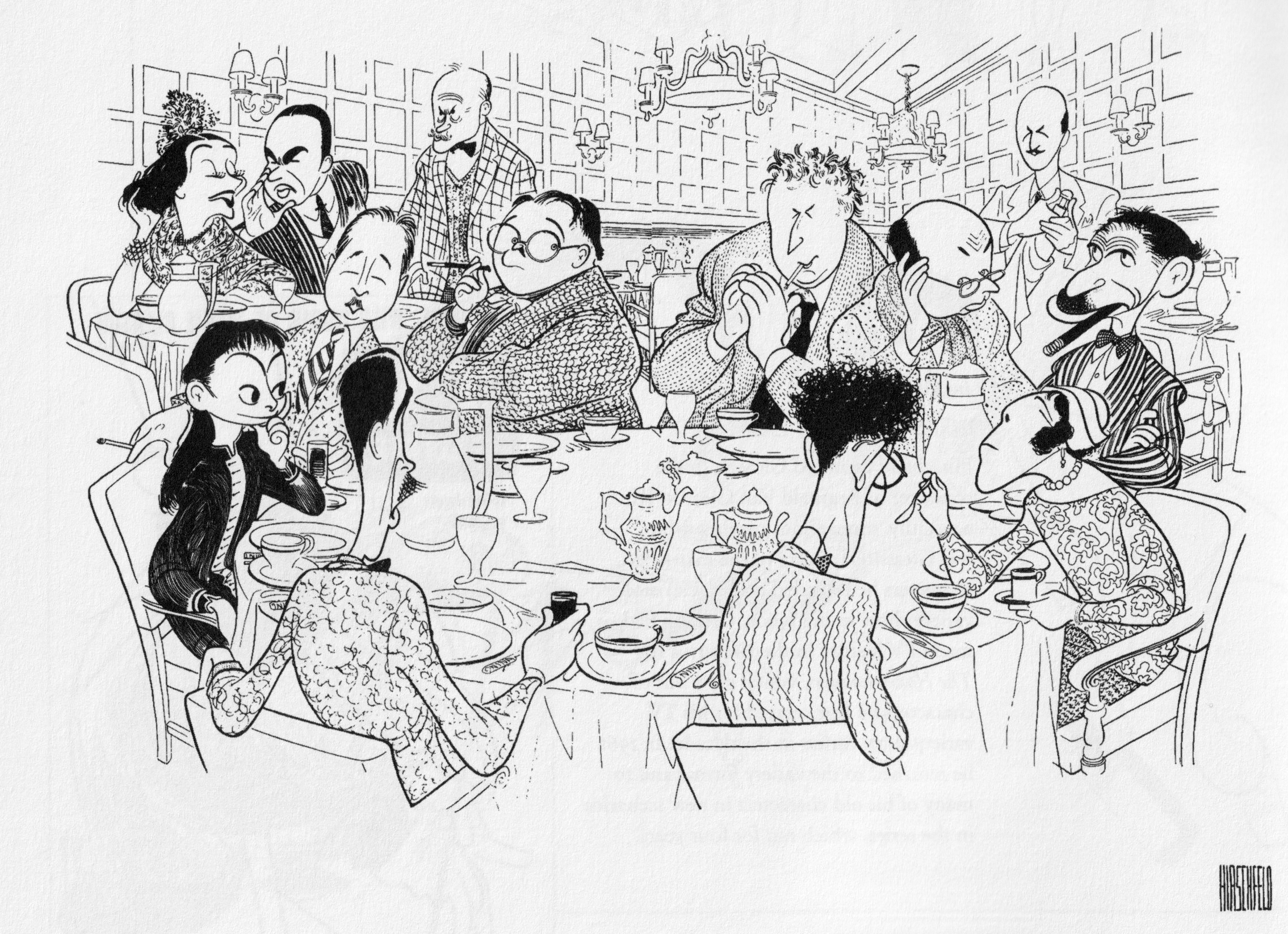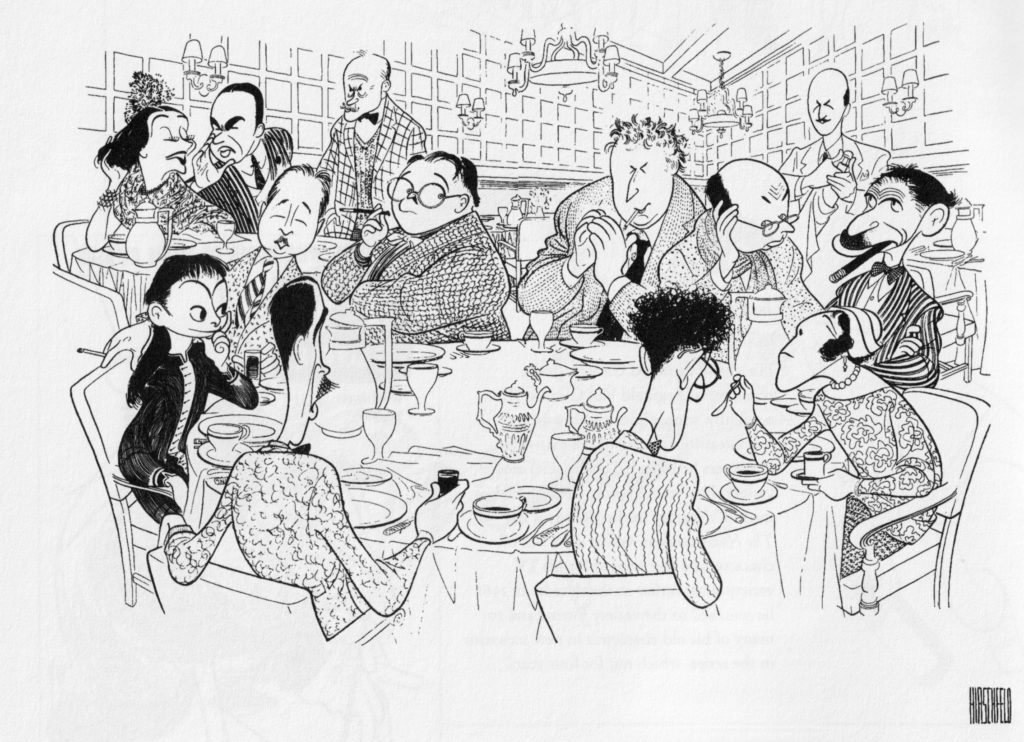Al Hirschfeld Podcast Celebrates Round Table Century
Kudos to David Leopold and Katherine Marshall-Eastman, co-hosts of the excellent Al Hirschfeld Century Podcast. The new episode celebrates the centennial of the Algonquin Round Table, which began in June 1919. There is currently the third annual Hirschfeld gallery of art on display in the Algonquin Hotel lobby. David and Katherine, who run the Al Hirschfeld Foundation, review most of the names in the famous drawing of the Vicious Circle from 1962. David has an encyclopedic knowledge of old shows and stars, and ticks off the history of all the members. Katherine displays an excellent knowledge of people who have been dead for 75 years, and gamely plays along while David schools her in Algonquin trivia. It’s a fantastic podcast. Be sure to visit the hotel while you can to see the artwork on display.

